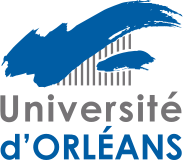Is monetary policy transmission green?
Inessa Benchora, Aurélien Leroy, Louis Raffestin
Economic Modelling - 2025-01
This paper examines whether traditional monetary policy affects firms differently based on their carbon emissions—a previously unexplored driver of monetary policy non-neutrality. We develop a theoretical model predicting that carbon-intensive (”brown”) firms are more sensitive to monetary policy shocks due to investor preferences for ”green” assets. We test this prediction using stock price data from U.S. firms between 2010 and 2019. Our findings confirm that brown firms are more sensitive to monetary policy shocks than green firms. This heightened sensitivity persists even after controlling for financial constraints and intensifies with rising climate awareness among investors. Our results suggest that traditional monetary policy is not carbon-neutral and unintentionally amplifies biases related to carbon emissions, highlighting important considerations for policymakers.
Lien HAL

